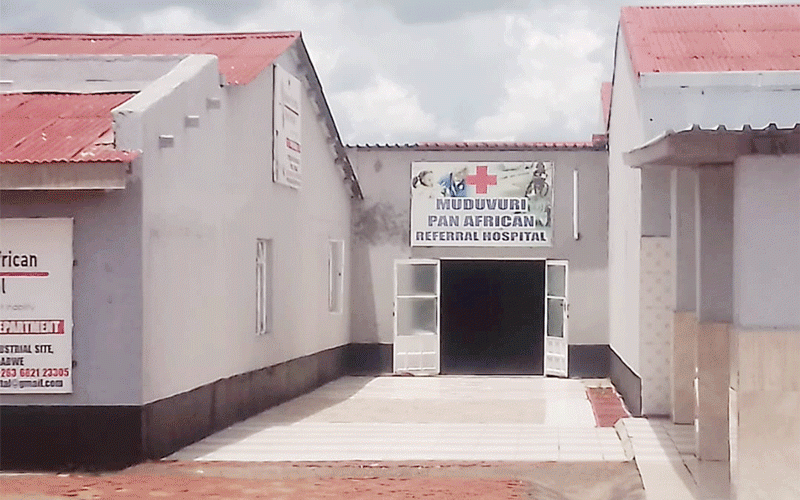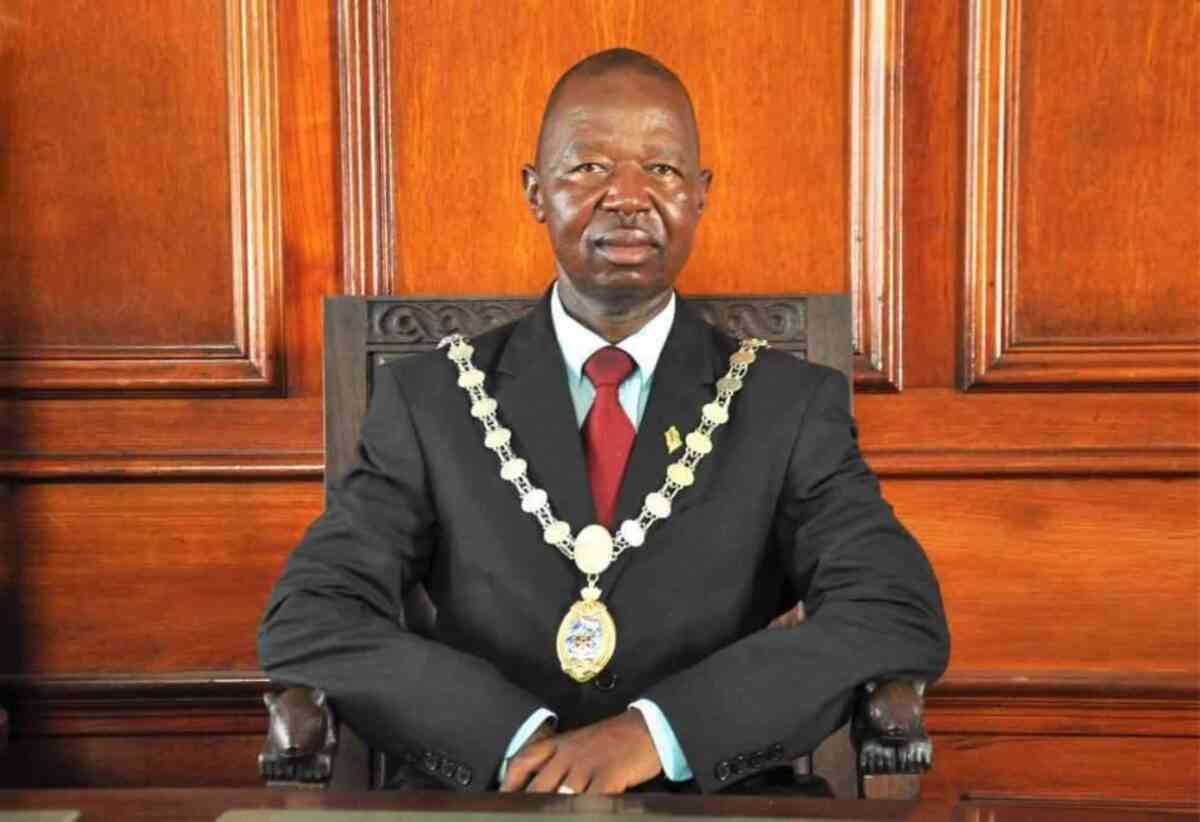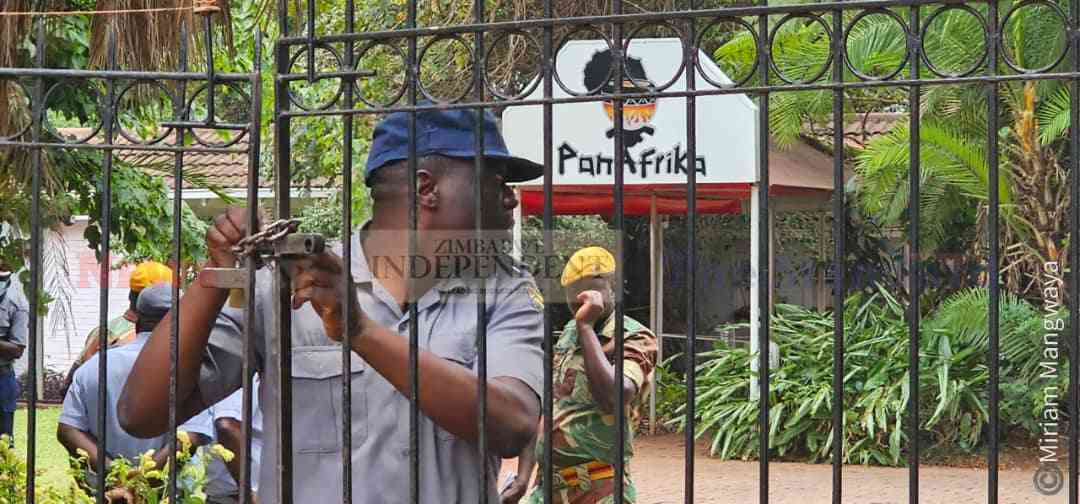
KADOMA and Chegutu are well farming districts despite the poverty that linger in the communities.
In Kadoma, cotton was a major crop that sustained hundreds of people in the districts.
The crop provided sustenance for the people while the discovery of minerals, including gold, became a heaven-sent gift.
However, as Zimbabwe’s economy started going down, the agricultural economy started going down.
The agro-based industries across Zimbabwe started going down.
This is the story associated with Kadoma and Chegutu, districts that grew out of agricultural production, especially cotton.
However, as Zimbabwe’s economy started going down one of the systems that went down was health with several people going without the essential service.
Millions of Zimbabweans are going without health services.
- Zim headed for a political dead heat in 2023
- Record breaker Mpofu revisits difficult upbringing
- Tendo Electronics eyes Africa after TelOne deal
- Record breaker Mpofu revisits difficult upbringing
Keep Reading
But, Jimayi Muduwuri believes he can change that system.
An active politician for many years, Muduwuri, a Masvingo-born Zimbabwean, has decided to go beyond his political persuasions.
He has transformed the former Kadoma Textiles complex into a hospital that many residents find as a relief to their challenges.
In an interview, Muduwuri told the NewsDay Weekender that his passion is all about serving the people.
He wants to do all he can for the disadvantaged people.
Muduwuri has turned the former textiles complex into a 500 bed hospital.
“Zimbabweans do not need to rely on the Western world to survive or even have quality health care,” he said in an interview yesterday.
“I am not doing this for my political persuasion, but the love of my people, especially the paraplegic.”
He said the hospital will give priority to the disabled people in Zimbabwe.
Muduviri is a Zimbabwean businessman based in Kadoma and is the Zimbabwe Amalgamated Council of Churches (ZACC) patron.
In 2019, Muduviri spearheaded the drive by churches to compel the European Union (EU) and United States to ease down on sanctions on Zanu PF leaders.
That same year, Muduvuri met former Vice-President Kembo Mohadi and handed over a petition in which different churches endorsed and registered their intention to march against sanctions.
According to reports, Muduviri founded the Muduvuri Rehabilitation and Empowerment Foundation, a charity foundation that works and focuses on helping and empowering disabled members of society.
He has also donated a motor vehicle to Danhiko Project groceries the organisation including boxes of sugar, beans, soap, salt and stationery.
“The hospital will serve a lot of people from Nembudziya, Gokwe, Masvingo and all Zimbabwe’s 10 provinces,” he said.
“We want to build a Pan-African referral hospital that will serve all the people.”
The hospital has all the departments with ambulances and emergency services.
“The government has liberated us as a people and its time we liberate our several.”
The programme targets the disadvantaged including the elderly and it has become a place for the afflicted to be.
Kadoma Textiles recently appealed to government for assistance to acquire new machinery and enough cotton for its plant as it seeks to increase production from 350 000 metres of cloth a month to 500 000.
The company, which employs about 800 full-time employees, is exporting 70 000 metres of cloth to South Africa, which is its main export destination.
However, Muwuri believes the run-down complex can be utilised to benefit the people.
“Zimbabweans are suffering and giving this facility would be in line with our government’s vision to include all of us,” he said.
Residents who spoke to the NewsDay Weekender hailed the move by the politician.
“He has done a lot for us and we wish he could do more,” Gogo Machondo, who was at the hospital, said.
She said the hospital has been a relief to the people.
“All the people from around the district are coming to the hospital. We are sort of competing with people who want to use the services here,” she said.
Muduwuri said he has been motivated to help the people as a public intervention.
Zimbabwe’s spending on healthcare is estimated at US$21 per citizen in 2020 (nearly 1 000 times lower) — showing the stark inequality in healthcare between rich and poor.
Healthcare spending in Zimbabwe has historically been poor compared with other countries in the region, according to a 2013 report on the state of health financing in the African region conducted.
According to the World Health Organisation (WHO). A minimum spending level of US$44 per capita was recommended by the High Level Task Force on Innovative International Financing for Health Systems in 2009.
The WHO overall recommends a spending level of US$86 per person — more than four times what Zimbabwe allocates.
The WHO report also noted that rural health centres are particularly at risk in the country.
WHO says the allocated $16 million in 2012, just five percent of the total health budget, despite the fact that 70% of people live in rural areas.
Zimbabwe has 214 hospitals, of which 120 are government hospitals, 66 mission hospitals and 32 are privately owned.
There are also six central government hospitals and 63 district hospitals, with the balance being rural hospitals, according to a 2015 tally.










